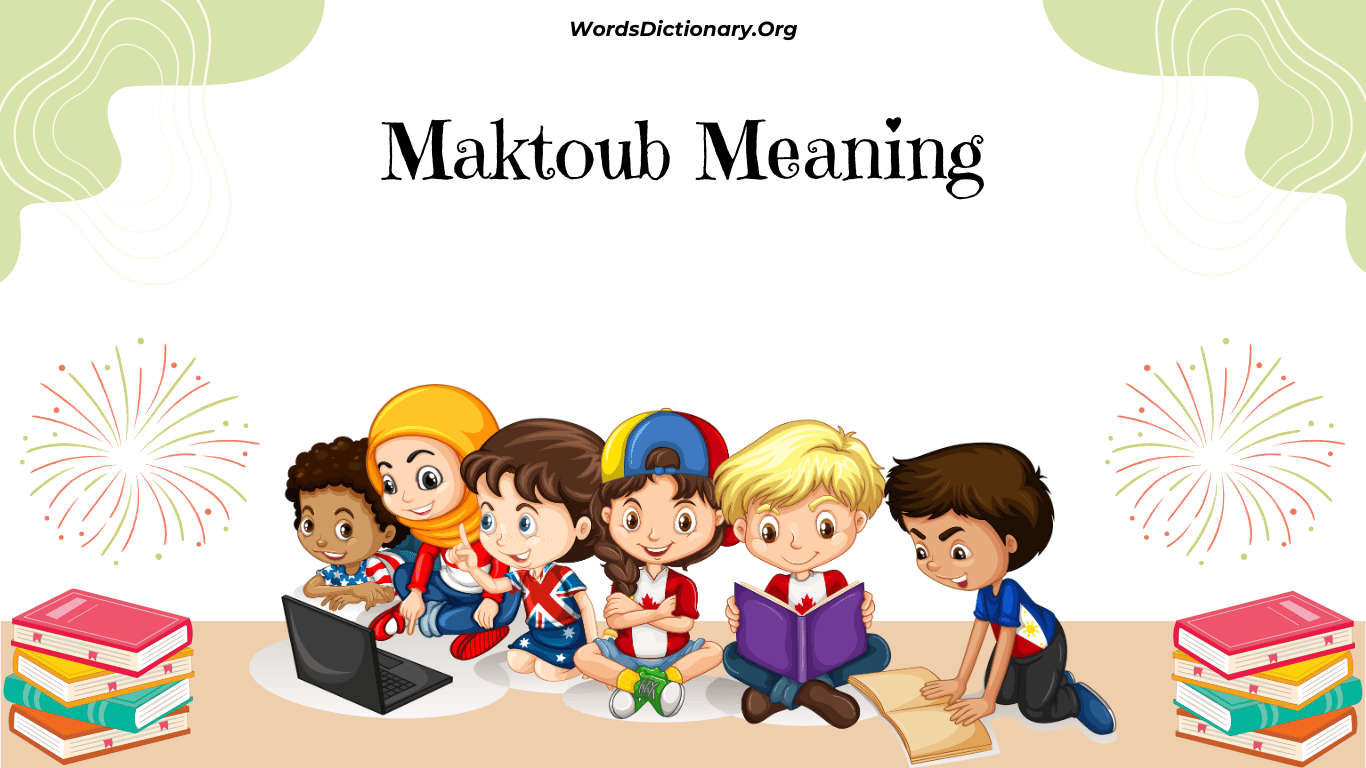Maktoub: Unpacking the Enigmatic Meaning
Language has a beautiful way of encapsulating complex ideas and emotions within single words or phrases. One such word that has piqued the curiosity of many is "Maktoub." It carries a mysterious and enigmatic aura, often associated with fate and destiny. In this blog post, we'll explore the meaning of Maktoub, its origins, and the profound implications it holds in different cultures.
The Origins of Maktoub
Maktoub finds its roots in the Arabic language. In Arabic script, it is written as "مكتوب," and when transliterated, it becomes "Maktoub." It is a term deeply embedded in Arabic culture, and its significance extends beyond mere linguistic boundaries.
The Literal Meaning
At its core, Maktoub translates to "It is written" or "It is destined" in Arabic. This phrase succinctly encapsulates the belief that certain events and outcomes in our lives are predetermined, beyond our control. It implies that there is a grand plan or script for each individual, and everything that happens is part of that plan.
The Concept of Fate and Destiny
The concept of fate and destiny is a central theme in many cultures worldwide, and Maktoub is a reflection of this universal belief. It suggests that our lives are not entirely subject to chance but are guided by a higher force, whether that be a divine entity, the universe, or a cosmic order.
In Arabic-speaking countries, Maktoub is often invoked to explain unexpected events, both positive and negative. It serves as a reminder that, ultimately, we are not in control of every aspect of our lives.
Maktoub in Popular Culture
Maktoub's influence extends beyond its linguistic and cultural origins. It has made its way into popular culture through various forms of media. It's not uncommon to hear characters in Arabic films or TV shows utter the phrase when faced with a turn of events.
Additionally, the idea of Maktoub has been explored in literature and music. Authors and songwriters often use it as a thematic element to add depth and complexity to their work.
Interpreting Maktoub
While the literal translation of Maktoub is clear, its interpretation can vary from person to person. Some may view it as a comforting belief that relieves them of the burden of controlling every aspect of their lives. Others might find it unsettling, as it implies a lack of agency and free will.
For some, Maktoub serves as a source of hope during challenging times, believing that there is a greater purpose behind their struggles. Others may see it as an excuse for complacency, assuming that their actions have no real impact on their future.
Conclusion
Maktoub is more than just a word; it's a concept deeply ingrained in Arabic culture and resonates with people worldwide. It reminds us that, amidst the chaos of life, there is an underlying order that governs our existence. Whether you embrace it as a guiding force or question its implications, Maktoub invites us to ponder the mysteries of fate and destiny, offering a glimpse into the profound complexities of human belief systems.

Comments
Post a Comment